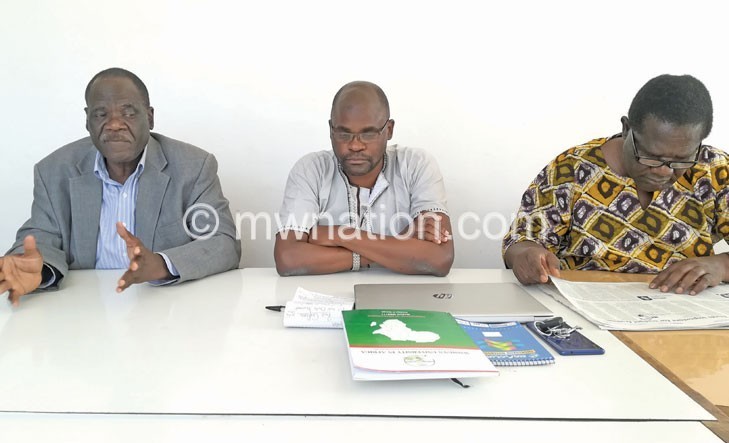Anti-quota movement backs down
The ‘Quota Must Fall Movement’ has backtracked on its earlier position to block Form One students from commencing classes tomorrow, claiming government has assured it of a second selection to address the queries.
Among others, the group’s leadership led by chairperson Moses Mkandawire; secretary general Dan Msowoya and member Reverend William Mumba, said at a press briefing in Mzuzu on Saturday that Capital Hill has also committed to relocate some students who originally came from the Centre and South, but were selected to schools in the North so that more space for students coming from the North is created.

Surprisingly, Minister of Education, Science and Technology William Susuwele Banda could neither confirm, nor deny the commitments, saying Principal Secretary Justin Saidi was better-placed to deal with the matter. But when contacted, Saidi expressed surprise on the said commitments.
Since announcement of the 2019 Standard Eight examination results, the group has been demanding nullification of the same on the pretext that Capital Hill used the quota (equitable) system in selecting the students.
Actually, in its petition presented in Mzuzu during demonstrations last Thursday, the group declared that it will not allow selected learners to report for classes.
But during the briefing on Saturday, Mumba said government had also committed to relocate some students.
“Some of them will be relocated to other schools in the South and Centre to create space for more students from the North to be selected to these national secondary schools. Based on this assurance from government, it makes sense to give chance to what government has said,” he said.
Mumba added that the group will closely monitor how students from the Centre and South, who were supposed to come to the North, have been relocated and how many students from the North will occupy the spaces left, including how many students from the North will be given spaces in the Centre and South.
On his part, Mkandawire said they have decided to give dialogue a chance, “not radicalisation, which may not help matters”.
“A joint committee will be setup between ourselves and government and other stakeholders to look into the quota system, how we phase it out, and what new system can be put in place,” he said.
Msowoya said they were yet to receive a written communication from Capital Hill on the new commitments, but was hopeful that it will come ‘soon’.
“We need to negotiate this very delicate balance. We are sure that government will make this written assurance and you will be privy to that.
“So, we are not doubting at all; for us it is like being unpatriotic when you begin to doubt government in this aspect,” said Msowoya.
In this year’s PSLCE, 218 756 out of 282 428 candidates passed, representing a pass rate of 77.46 percent.
There are two schools of thought on the quota system—one supporting the system for which proponents feel some groups, regions or districts have dominated access to higher education due to economical, historical, political and ethnical reasons, among others.
Proponents of the review argue that in its current state the system, also loosely referred to as ‘equitable system for admission into public universities’, is discriminatory and illegal.





